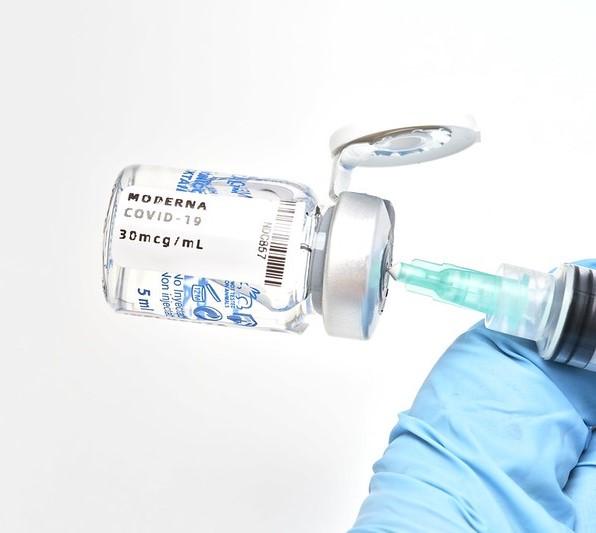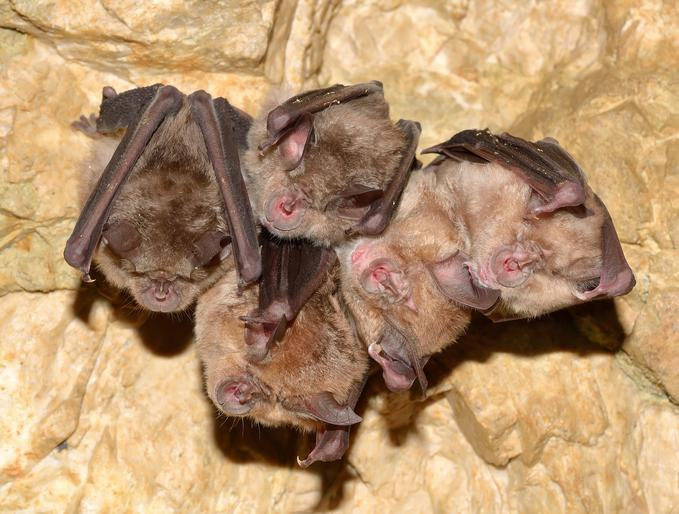- At a media briefing today, top officials with the Pan American Health Organization (PAHO) warned that cases in region are running three times higher than last year at this time, putting the region on track to break last year's record of 4.5 million cases. Jarbas Barbosa, MD, PAHO's director, said countries in the Southern Cone, including Brazil, Argentina, and Brazil, are experiencing summer surges. He added, however, that countries that typically see dengue rises in the second half of the year are also seeing upticks in cases, including Barbados, Costa Rica, Guadeloupe, Guatemala, Martinique, and Mexico. So far, the region has recorded 3.5 million cases, about 1,000 of them fatal. Health officials urged countries to double down on mosquito control efforts and to support the ability of healthcare providers to recognize and treat cases early.
- Doctors Without Borders (MSF) this week called for the establishment of an international stockpile of Ebola treatments. Though it's been 10 years since West Africa's large outbreak, two treatments are not readily available in countries where Ebola is endemic. "Instead, all Ebola treatments remain under the control of just two US pharmaceutical corporations, Regeneron and Ridgeback Biotherapeutics, and are almost exclusively kept in a US stockpile for national security and biodefense purposes," MSF said in a statement. It called for an emergency stockpile to be created and run by the International Coordinating Group on Vaccine Provision, which it said would ensure that countries experiencing outbreaks can receive the treatments quickly.
Quick takes: Record dengue pace in the Americas, call for Ebola treatment stockpile
CDC warns of sharp rise in meningitis serogroup Y cases
The Centers for Disease Control and Prevention (CDC) today warned healthcare providers about a rise in invasive meningococcal disease, mainly from Neisseria meningitidis serogroup Y, with some patients having symptoms that aren't typical for meningitis.

In a Health Alert Network (HAN) notice, the CDC said that, for 2023, it recorded the most US serogroup Y cases since 2014, and so far cases this year are tracking ahead of last year's numbers. As of March 25, the CDC has received reports of 143 cases for 2024, 62 more than the 81 cases reported at this time last year.
Most of the cases involve a specific meningococcal strain, ST 1466, which is disproportionately affecting adults ages 30 to 60, Black or African American people, and those with HIV.
Most of the patients with ST 1466 infections last year had symptoms other than meningitis, especially bacteremia but also septic arthritis in some instances.
The CDC recorded 422 cases in all of 2023. Among 74 patients with known outcomes, 17 (18%) died, a higher case-fatality rate than the 11% seen for serogroup Y from 2017 to 2021.
MenACWY reminder for recommended groups
The CDC said ST 1466 has contributed to previously reported increases in meningococcal disease in people with HIV. Of 24 HIV patients infected with the subtype in 2022 and 2023, only 4 had received the vaccine against serogroups A, C, W, Y (MenACWY), and, of those, none were up to date with their doses. "To date, no other ST-1466 cases have been identified in people who previously received MenACWY vaccine," the CDC said.
It urged healthcare providers to have a heightened suspicion for meningococcal disease in the disproportionately affected groups, to be aware of atypical symptoms, and to ensure that all people recommended to receive the MenACWY vaccine are vaccinated, especially those with HIV.
Moderna reports promising findings for next-generation COVID vaccine
Moderna today announced promising interim phase 3 clinical trial findings for its next-generation COVID vaccine, which offers the potential for a longer shelf life and paves the way for a combination mRNA vaccine against flu and COVID.

The mRNA-1283 vaccine showed a higher immune response—including in seniors—than its currently licensed vaccine, called mRNA-1273.222. Response was higher against Omicron BA.4/BA.5 as well as the original SARS-CoV-2 virus.
The trials enrolled more than 12,000 people ages 12 and older in the United States, Canada, and the United Kingdom. Researchers also found the mRNA 1283 had a similar safety profile as Moderna's currently licensed vaccine.
"The storage, shelf life and pre-filled syringe presentation of mRNA-1283 could alleviate healthcare provider burden and potentially increase access into new settings to serve public health," the company said in its statement.
In a separate statement on the status of its mRNA vaccines portfolio, Moderna said clinical trials of its combination flu-COVID vaccine (mRNA 1083) in people ages 50 and older is fully enrolled and that it expects data this year. The US Food and Drug Administration has granted it fast-track designation.
Pandemic-prevention plan stresses conservation of animal habitats and their food supplies

A roadmap written by international scientists describes how conserving natural areas and supporting biodiversity can prevent pathogens with pandemic potential from spilling over from animals to other species and people.
The plan, published in Nature Communications, uses case studies on Hendra virus spillover from bats to horses and people to detail the link between environmental/climate change and zoonotic spillover, the ecologic interventions that can disrupt spillover mechanisms, and policies for their implementation.
"To effectively prevent pandemics, we must recognize two key points: first that pandemics almost always start with a microbe infecting a wild animal in a natural environment and second that human-caused land-use change often triggers the events–whether through wildlife trade or other distal activities–that facilitate spillover of microbes from wild animals to humans," the authors wrote.
Displaced bats shed more virus
The case studies demonstrate that when bats lose their natural habitats and winter food sources, they break into small groups and migrate to agricultural and urban areas. The unstable food supply stresses the bats, who then shed more Hendra virus in their urine onto the ground, infecting grazing horses that then infect people with the respiratory and neurologic disease.
We need to make sure there's always an abundant supply of food available at all times of year, especially when animals are in stressful life history stages like reproduction and migration.
Raina Plowright, PhD
But if bats' natural habitats provide enough food, the bats return, form large groups, and stop shedding virus. "We need to make sure there's always an abundant supply of food available at all times of year, especially when animals are in stressful life history stages like reproduction and migration," lead author Raina Plowright, PhD, of Cornell University, said in a Cornell news release.
Protecting areas where animals roost or aggregate (caves, in the case of bats) is key to ensuring a buffer between people and wildlife, the scientists said. If people do come into contact with wildlife, they need to be equipped with protection against infection. The authors called for creation of an international agency or panel to evaluate and synthesize data on pandemic prevention, preparedness, and response, and gather metrics on the stability of natural areas, ecologic integrity, and biodiversity.
BioMerieux receives FDA clearance for rapid respiratory/sore throat test
French diagnostics company bioMerieux announced yesterday that it has received US Food and Drug Administration 510(k) clearance for a rapid respiratory/sore throat panel that company officials say will help clinicians make more informed decisions about antibiotic prescribing.
The panel, Biofire Spotfire, is a multiplex polymerase chain reaction (PCR) test capable of detecting and identifying nucleic acids from up to 15 of the most common bacteria, viruses, and viral subtypes that cause respiratory or sore throat infections in about 15 minutes. The test uses samples taken from nasopharyngeal and throat swabs.
"The flexibility of this syndromic panel allows healthcare professionals to test for multiple pathogens with overlapping signs and symptoms, ultimately allowing the diagnostic to drive informed decision-making during the outpatient visit," bioMérieux Executive Vice-President and Chief Medical Officer Charles K. Cooper, MD, said in a company press release. "These results further empower the advancement of antimicrobial stewardship and modernize patient care."
The company also received a Clinical Laboratory Improvement Amendments waiver for the test, which allows it to be used by non-lab professionals and in any setting where patients seek care.











